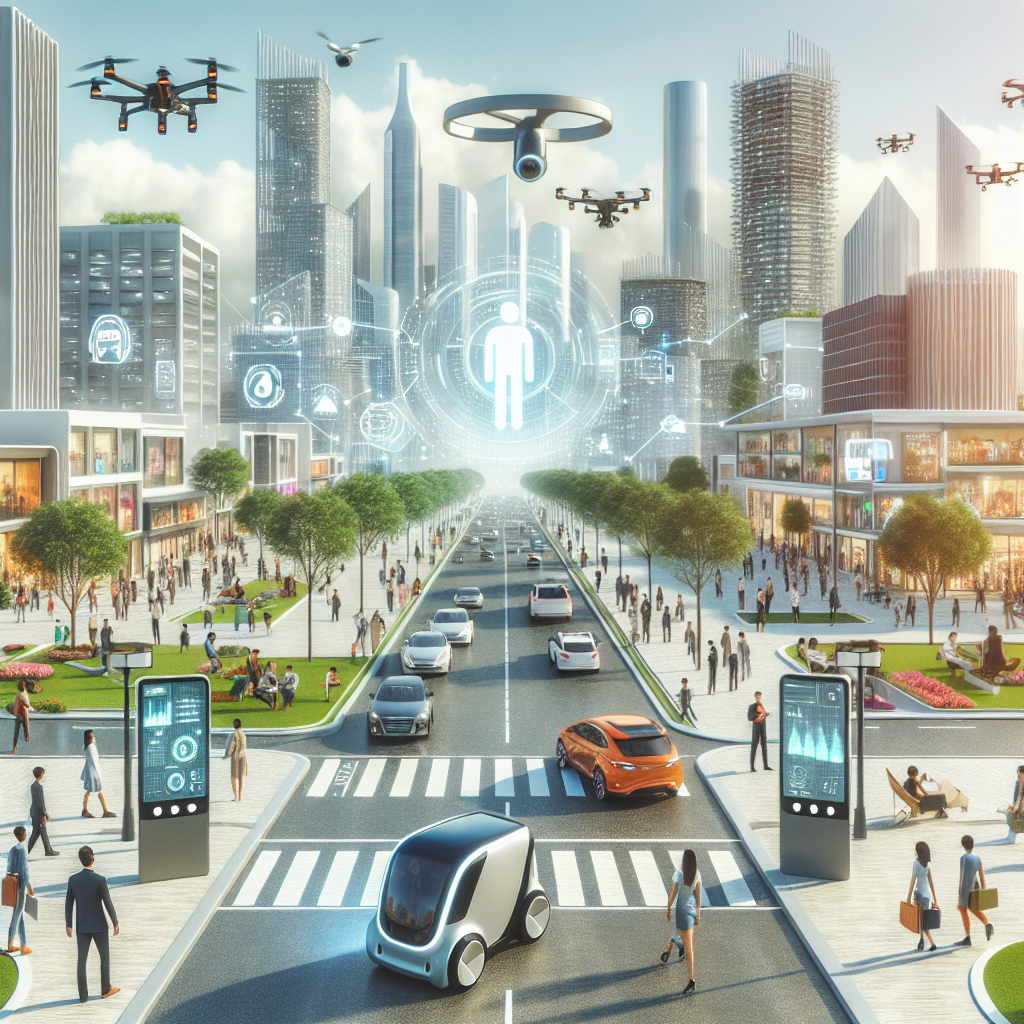“`html
AI in Smart Cities: Your Questions Answered
Hey there! Curious about how AI is transforming our urban spaces into smart cities? You’re in the right place. There’s a lot of buzz around this topic, and for good reason. Let’s dive into some of the most common questions people have about AI in smart cities.
What is a Smart City?
Great question! A smart city uses digital technology to improve the quality of life for its citizens. This means better infrastructure, more efficient services, and greater sustainability. Think of it as a city where everything is connected and optimized.
How is AI Used in Smart Cities?
AI can be a game-changer for urban living. Here’s a sneak peek at some ways it’s already making a difference:
- Traffic Management: AI algorithms analyze traffic patterns in real-time to reduce congestion, optimize traffic light timings, and even suggest alternative routes to drivers.
- Public Safety: AI-powered surveillance systems help in crime detection and prevention by identifying unusual activities and notifying authorities.
- Waste Management: Smart sensors and AI can predict waste collection needs, making garbage collection more efficient and less frequent.
- Energy Efficiency: AI optimizes energy use in buildings, controls street lighting, and manages the power grid to reduce waste and lower costs.
Are There Any Real-Life Examples of AI in Smart Cities?
Absolutely! Here are a couple of real-world examples:
- Barcelona, Spain: This city uses AI to manage its water supply, ensuring efficient distribution and reducing waste.
- San Diego, USA: San Diego employs AI-driven streetlights that adjust their brightness based on the presence of pedestrians and vehicles, saving energy and enhancing safety.
What Are the Benefits of AI in Smart Cities?
The advantages are plenty:
- Increased Efficiency: Automated systems streamline city operations, saving time and resources.
- Improved Quality of Life: Enhanced public services, safer streets, and cleaner environments make cities better places to live.
- Better Sustainability: AI helps cities use resources more wisely, which is great for the environment.
Is AI in Smart Cities Safe?
Safety is a top priority! While there are concerns about data privacy and cybersecurity, many cities are implementing robust measures to protect citizens’ data. Transparency and strict regulations are essential to ensure that AI is used responsibly.
Will AI Take Over Jobs in Smart Cities?
This is a common worry, but the reality is a bit more nuanced. Yes, AI might replace some jobs that involve repetitive tasks, but it also creates new opportunities in tech, management, and maintenance sectors. Upskilling and education will be key to navigating this change.
How Can I Stay Informed About AI in Smart Cities?
Staying informed is easier than ever! Here are a few tips:
- Follow reputable tech news websites and blogs.
- Join online forums and communities focused on smart city developments.
- Attend webinars and conferences related to AI and urban planning.
There you have it—our quick tour through the fascinating world of AI in smart cities. The future looks bright, and we’re excited to see how AI continues to shape our urban landscapes!
“`
